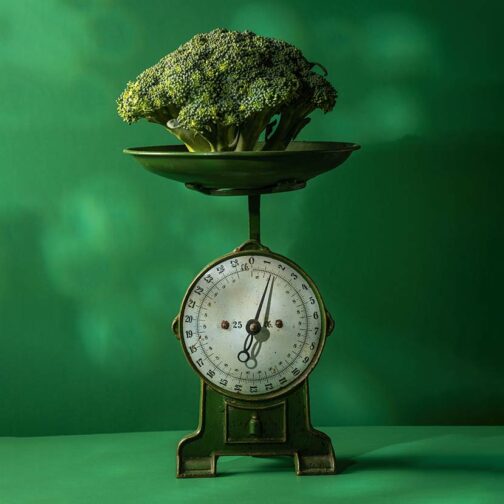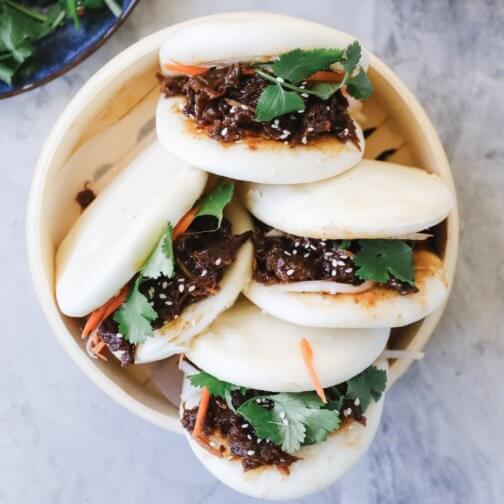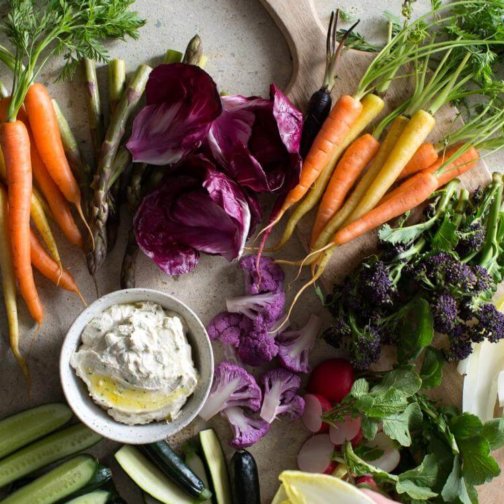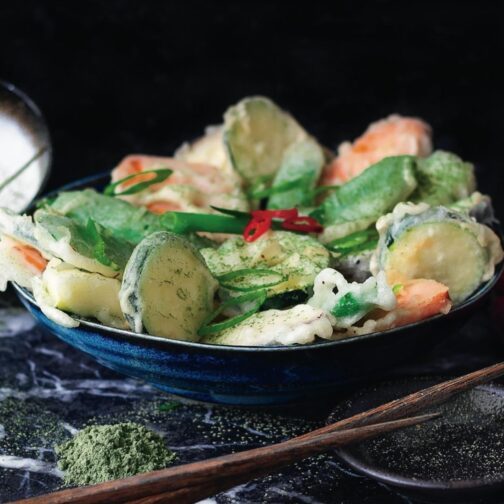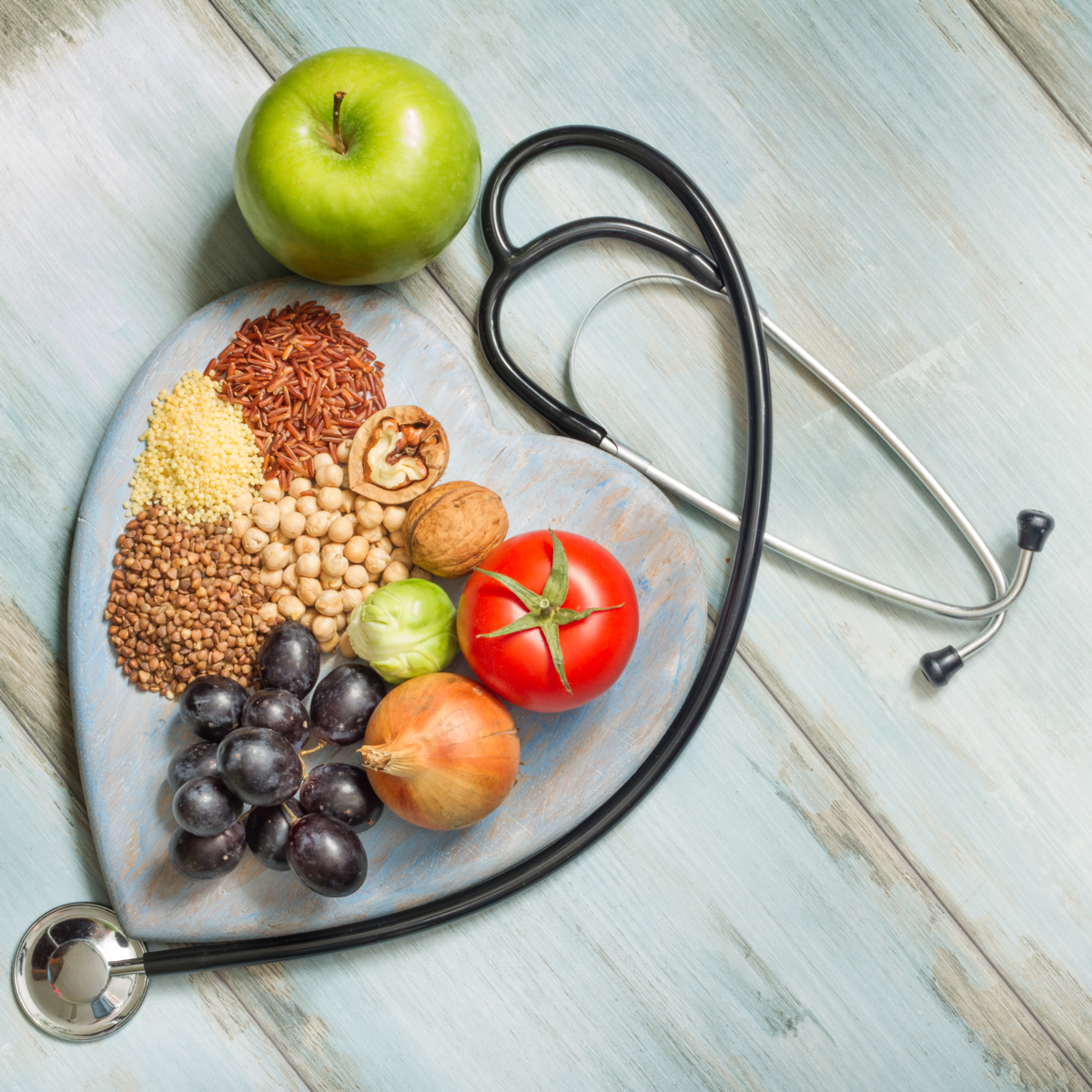
Is cancer part of a genetic lottery or can prevention really begin on our plate? Dr Renae Thomas explores the role of healthy whole food plant-based nutrition as part of the cancer prevention toolkit.
When I was four years old, my father was diagnosed with metastatic cancer. This type of cancer is one that spreads from where it started in the body to other areas. Despite the fear, pain and suffering, thankfully, he has been cancer-free and healthy for 25 years since. I can now reflect on the positives that came out of this challenging time for our family, which ended up being my introduction to nutritional medicine.
I will never forget many of the awful experiences my father went through: the seemingly endless vomiting, the weight loss, losing his hair, and the pallor of his skin. He became a shell of himself from total exhaustion. But equally, I remember more amusing events, such as his lips and hands stained orange from juicing, the playful arguments we had over dinners of pureed vegetables (again!), and – much to the horror of almost everyone at that time – our transition to a plant-based diet.
I will never know for sure whether my father’s lifestyle changes contributed to his cancer recovery, subsequent remission, and relapse prevention. However, he was always very conscious of basing his choices on the best scientific evidence available. The emerging research that continues to be published remains founded on the same principles – that preventing many of the chronic diseases that still plague us today has a strong relationship with nutrition.
What are the chances?
Cancer has become a deep-rooted fear for much of the world’s population. This is not without reason, given cancer is the second leading cause of death globally. Every year, approximately 17.5 million people receive a new diagnosis of cancer, a figure predicted to increase by about 70 percent by the year 2030.
And, it’s not simply a lottery of genetics. The American Institute for Cancer Research estimates that around 40 percent of cancer cases are preventable. This means about seven million cases of cancer could be prevented every year by optimising controllable cancer risk factors – including nutrition.
It is estimated that one in every three cancers may be directly associated with sub-optimal dietary intake. What we eat represents a multiple-times-per-day environmental exposure that varies greatly between individuals. This is why dietary differences and their relationship to cancer have been extensively studied.
Nutrition research has been broadly divided into two categories: dietary exposures related to increased cancer risk and dietary exposures that may have a protective effect against the development of cancer.
The bad news first
Much of the evidence we currently have suggests that diets high in animal products and low in plant-based foods increase the risk for cancer development, recurrence, and risk of dying from cancer. This evidence is consistent with results generated by numerous meta-analyses and systematic reviews as well as with large research studies of various populations worldwide. Here is what the research tells us about cancer and animal products.
High intakes of animal protein have been associated with increased risk of cancer mortality. Many known (class-1) and probable (class-2) carcinogens can become concentrated in animal products, especially those higher in fat. Consumption of these increases exposure to many environmental toxins and pollutants, including pesticides, herbicides, insecticides and heavy metals.
The World Cancer Research Fund states that both unprocessed and processed red meats can increase inflammation and cellular stress, and increase exposure to compounds such as nitrites. For example, every 50 grams of processed meat consumed per day (such as one hotdog or two slices of ham) is associated with an eight percent increase in the risk of dying from cancer.
‘Meat-cooking-related mutagens’ (Heterocyclic Amines and Polycyclic Aromatic Hydrocarbons) are classed as known carcinogens. These are found in well-cooked meat, poultry and fish products, in pan drippings, and in any meat surface that is browned or chargrilled.
Eating seafood and white meats is also associated with increased exposure to many known carcinogens, including heavy metals, added hormones, antibiotics, and plastics.
High intakes of dietary fat and cholesterol are associated with increased risk for cancer. Animal products contribute to much of this in the standard Western diet. Just half an egg, one and a half serves of dairy, and 125 grams of meat, poultry or seafood per day exceeds the maximum recommended intake of dietary cholesterol.
It’s also important to understand that some typically plant-based foods can also increase cancer risk. These include ultra-processed foods, alcohol, carbonated beverages, and excess refined carbohydrates.
So, what’s the good news?
There are specific foods associated with decreased cancer risk, and the ones with the most consistent evidence are plant-derived. Let’s look at the benefits of plant foods according to the research.
-
Plant foods are high in substances known as phytochemicals, which have antioxidant properties that reduce stress on DNA and can protect cells from turning into cancer.
-
Plant foods are the only source of fibre in human diets, with numerous large studies providing evidence that higher fibre intake is associated with reduced risks for many types of cancer.
-
Wholegrains contain a vast variety of substances that can be protective against cancer formation, including fibre, vitamins and minerals, healthy plant chemicals, nutritious plant fats, and antioxidants. These can support cell, gene and hormonal functions, while reducing inflammation, cholesterol and cellular stress.
-
Fruits and vegetables similarly contain many health-promoting compounds, such as fibre and antioxidants, which help protect and detox DNA, cells and enzymes from stress and damage. Cruciferous vegetables (such as broccoli, cauliflower, cabbage and kale) are particularly powerful for cancer prevention.
-
The anti-cancer properties of nuts and seeds include many compounds that have been found to support healthy cell function and growth, and also suppress many cell functions that may lead to cancer. Nuts and seeds are also high in fibre, vitamins and minerals, anti- inflammatory substances, and healthy fats – many of which have been associated with a decreased cancer risk.
-
Numerous studies have documented the antioxidant, anti-inflammatory, and immune-boosting effects of herbs and spices. Research suggests they may enhance prevention and treatment of several cancers by supporting healthy cells and DNA, preventing the growth and spread of cancer cells, optimising hormones, and making cancers more responsive to treatments including radiotherapy and chemotherapy.

What we eat matters
The general consensus of all scientific research is that the processes of cancer and its treatment, remission and recurrence are highly complex, with significant interaction between human genes and environmental exposures.
Excitingly, there is a growing body of high-quality evidence that suggests cancer risk reduction strategies can lie in the foods we eat each day. While there are no guarantees or absolutes, it does appear that for many (like my dad), a shift towards eating more plants and less animal products can have a protective effect against cancer development.
What we eat can even enhance treatment response, raise the chances of full remission, and help avert the likelihood of cancer recurrence. This information is incredibly empowering for the global fight against cancer. But it gets even better, as the science also shows eating more whole plant foods is protective against many other chronic diseases such as type 2 diabetes and cardiovascular disease. Much of this evidence exists on a spectrum, meaning it doesn’t have to be all or nothing. Every step in the right direction can be celebrated, because each healthy choice contributes towards improvements.
In no way do I suggest a plant-based diet is a substitute for medical care; there are no ‘miracle cures’. However, I am confident that the peer-reviewed scientific research that has fascinated me since childhood shows us nutrition plays a powerful role in health and disease prevention.
It brings me great satisfaction to have a nutrition prescription in my tool kit to help support my patients. This information can be applied in an attainable and sustainable way for those with a diagnosis as much as it can by those who wish to minimise risk. In short, my research and experiences have taught me to eat more plants… and that Dad is always right!

